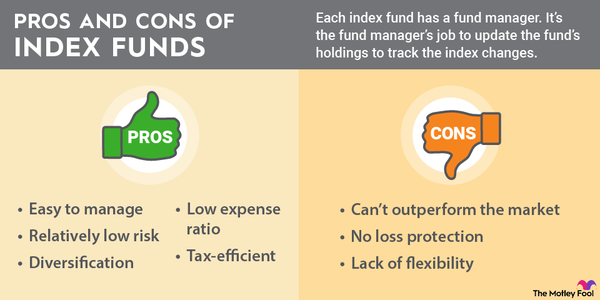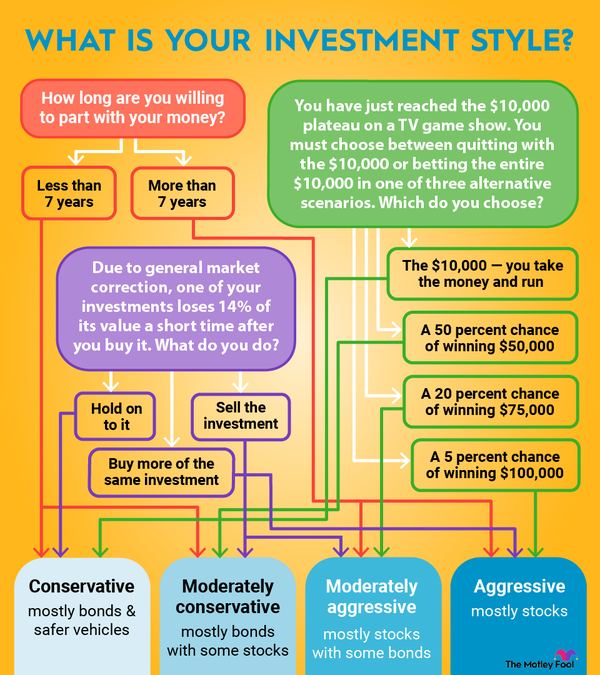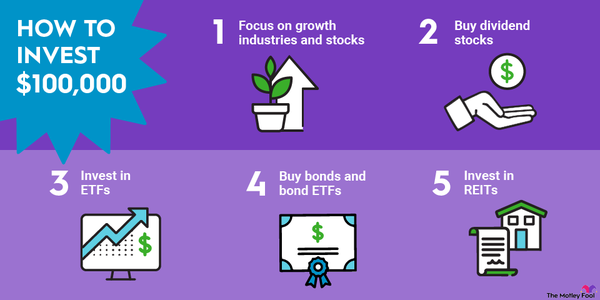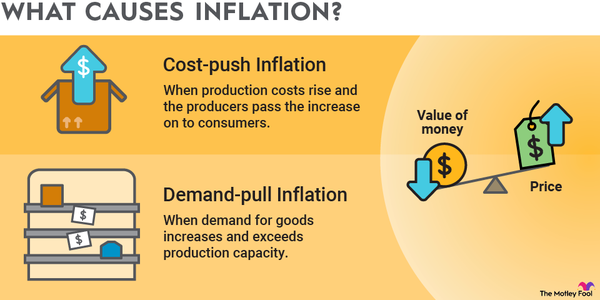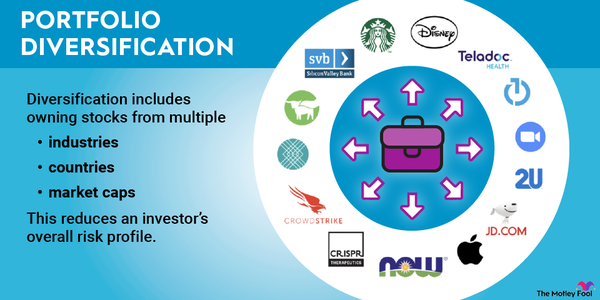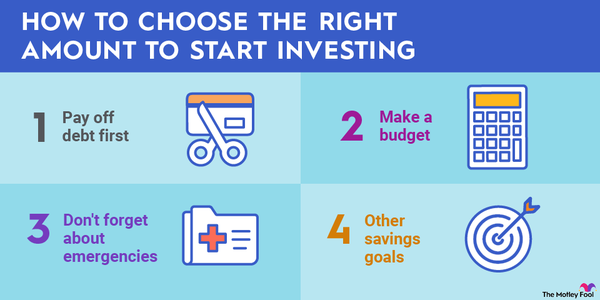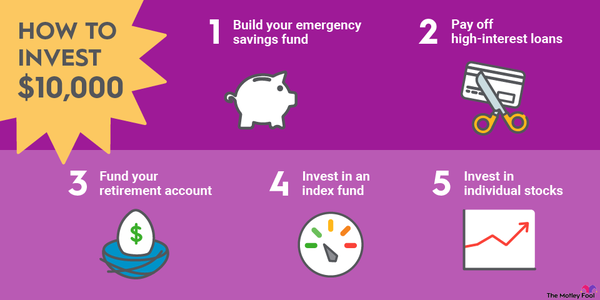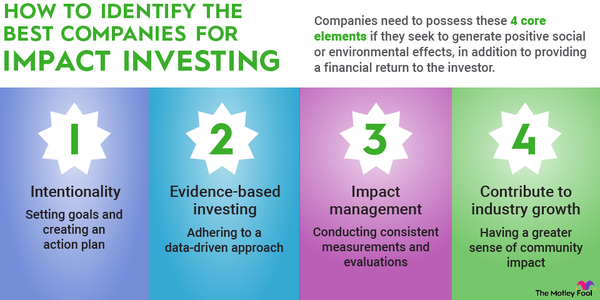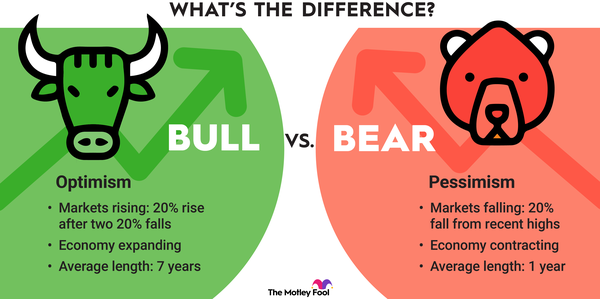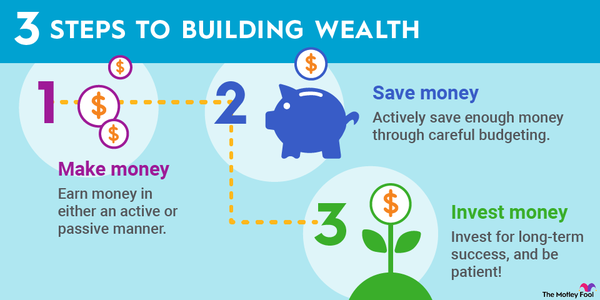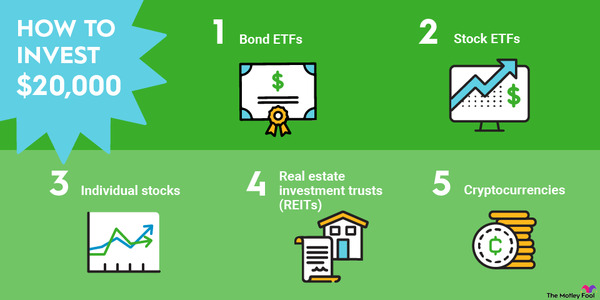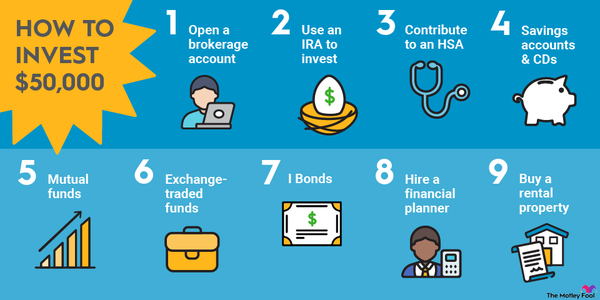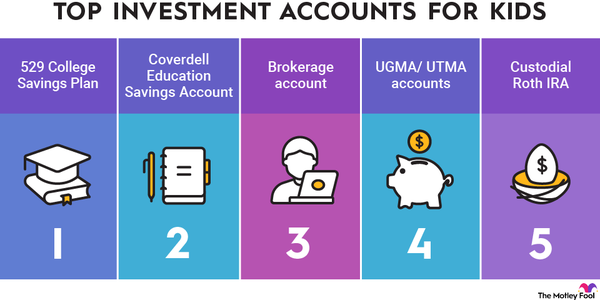Time gives teenagers a massive advantage over those starting their investment journey later in life. Albert Einstein once said, "Compound interest is the eighth wonder of the world. He who understands it earns it … he who doesn't … pays it."
What makes compounding such a powerful force is the impact it has over time. The longer you allow an investment to compound, the more valuable it can become.

Teens can let the wonders of compounding interest work to their advantage for a longer period, which could make them wealthier by the time they hit retirement.
This guide will help teens and their parents (since you must be 18 to open a brokerage account in most states) get on the right path to building wealth through investing. Getting on the best path is crucial since it will allow a teen to take full advantage of compounding interest.
Compound Interest
Five steps to investing as a teenager
Five steps
It's easy for anyone, including teenagers, to start investing. Just follow these five steps, and you'll be on your way to an exciting lifetime adventure:
- Learn the basics of investing.
- Find your investing identity.
- Discover the right investments for you.
- Open and fund your brokerage account.
- Make your first investment.
1. Learn the basics of investing
As with any new adventure, investing might seem challenging at first. However, it's relatively simple once you understand stock market basics and how to invest in stocks. Read as much as you can about investing so you know how it works, what mistakes to avoid, and the best practices to follow. Also, be sure to check out our book, The Motley Fool Investment Guide for Teens.
2. Find your investing identity
Another important part of the process is to discover your investing identity. Are you a risk-taker? Then growth investing might be right up your alley. Do you like getting paid (and who doesn't)? Consider income stocks. Do you love a great deal? You might be a value investor at heart.
As you learn more about investing, you'll discover what interests you the most, which is the key to staying invested over the long term so that you can benefit from the wonders of compound earnings.
As you discover more about how to invest money as a teenager, you'll likely go down one of two paths: Active or passive investing.
If you find that active investing isn't your thing, don't give up. Instead, take a little more time to investigate passive options such as mutual funds and index funds, which track stock market indexes.
There's no wrong answer when it comes to risk tolerance, but if you fail to find your identity and take on more risk than you can handle, it can cause you to make bad, panicked decisions when times are tough.
There's a great deal to gain by consistently putting money into an index fund and calling it a day. Over the long term, they'll do a wonderful job of increasing your wealth.
3. Discover the right investments for you
If you do get bit by the investing bug, start learning how to research stocks. Then, pick a few you like that align with your interests (investing and otherwise) and start digging into the company. Learn how it makes money, how much it can grow, and where else it might expand in the future.
Familiarize yourself with its financial statements to see if it has the flexibility to survive the inevitable economic downturns. Go through this process for companies you like and whittle them down to a list of those you want to own.
4. Open and fund your brokerage account
Once you're ready to start investing, it's time to open and fund a brokerage account. Anyone at least 18 years old can open an online brokerage account. People who are younger than that will need a parent's assistance.
Parents can either open a brokerage account on their teen's behalf or set up a custodial account. The process is relatively simple and usually takes less than 15 minutes. If you have earned income, a Roth IRA for kids can be a great way to start investing.
5. Make your first investment
Once the funds clear in your brokerage account, it's time to make your first stock purchase. Decide which of the stocks on your list you want to buy and set up the order. We recommend using a market order to make the purchase.
When you're ready, submit the order during market hours. Before you know it, you'll be the proud owner of a small piece of what you believe is a great company or, if you choose to go the passive route, a basket of great companies.
Now, repeat the process and build out a diversified portfolio. Continue adding money to your brokerage account and buying more shares of the companies or index funds you want to own to take even greater advantage of compound interest over time.
How parents can start investing for their teens
How parents can invest for teens
Parents can play a vital role in helping their teens to start investing. The best way they can do that is to encourage them during every step of the process. If you're already an experienced investor, show them the ropes. If not, learn with them.
Guide them in discovering their investing identity, which might be quite different from your own. Your teen has decades of investing ahead of them, while you have a shorter remaining investing time horizon. They can afford to take on more risk, including investing in some individual stocks that pique their interest, even if it might be a bumpier road. Encourage them to find what interests them the most so that they'll stick with investing when times get tough, which we all know eventually happens.
Help them set up their brokerage account, but don't do it for them. You want them to take ownership and initiative so that they continue investing. Also, it wouldn't hurt to get them started with a gift deposit in their brokerage account. You could even offer to match a portion of their future deposits for a few years, much like a 401(k) company match.
The role time plays in compounding gives teens an advantage, so parents should encourage their teens to get started as soon as possible. They might complain at first, but they'll eventually thank you for helping to get them on the path toward financial freedom.
Related investing topics
Learn the hard lessons together
Learn together
It has been a wild few years for investors. Stocks road a pandemic-fueled roller coaster, survived the so-called "meme stock" craze where certain stocks surged and plunged for no apparent reason, and more recently, investors have been forced to deal with the uncertainty caused by rising inflation.
Such volatility can be unsettling for even the most seasoned investor. For teens and others new to investing, it can be downright horrifying. It is important for parents to help their teens stay focused on the long term and remain mindful that although it can be hard to say how stocks will move on any particular day over time, stocks historically have gone up in value.
Investing for teens FAQs
How to invest $1,000 as a teenager?
Teens have time on their side and don't have to be too aggressive. Just $100 invested in the S&P 500 by an 18-year-old would be worth $88,197.49 by the time that person turns 65, assuming the index's historical average 10% rate of return. Teens also have plenty of time to make mistakes and learn from them, so they should not be afraid to take some risks or invest in what interests them. Just be willing to learn from your mistakes as you go!
When can a teenager start investing?
You usually have to be at least 18 to invest in stocks, although there are ways to get started even younger. An adult can open a custodial account on behalf of a child that will legally transfer to the child once they turn 18.
How can I invest if I'm under 18?
The easiest way for a person under 18 to trade stocks is for an adult to open a custodial account with a brokerage on behalf of a child and then invest in stocks on the child's behalf, with the child directing the investments if they want. When the child turns 18, the account and the investments it contains automatically become theirs and they can make future investment decisions.
What can a minor invest in?
A minor can invest in the entire market, as well as in crypto and other asset classes, through a custodial account. It is rare to find a brokerage that will allow a minor to invest without an adult opening an account on their behalf.









